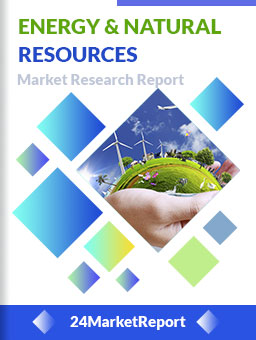
Download FREE Report Sample
Download Free sampleMARKET INSIGHTS
Global luxury hotel market size was valued at USD 65.9 billion in 2024 and is projected to grow from USD 68.7 billion in 2025 to USD 95.4 billion by 2032, exhibiting a CAGR of 5.6% during the forecast period.
A luxury hotel represents the pinnacle of hospitality offerings, characterized by premium accommodations, bespoke services, and exceptional amenities that cater to high-net-worth travelers. These establishments differentiate themselves through meticulous attention to detail, superior comfort standards, and personalized guest experiences that often include gourmet dining, spa facilities, and concierge services. The sector continues to evolve with emerging trends like wellness tourism and experiential stays gaining prominence.
The market's growth stems from multiple drivers, including rising disposable incomes among affluent consumers, increasing international tourism, and growing preference for unique travel experiences. However, economic uncertainties and changing consumer behaviors post-pandemic present ongoing challenges. Major players like Marriott International and Hilton Worldwide continue to dominate through strategic expansions and service innovations, while boutique luxury brands are gaining traction by offering localized, culturally immersive stays.
Rising Affluence and Disposable Income to Fuel Luxury Hospitality Demand
The global luxury hotel market is experiencing significant growth driven by increasing disposable incomes among high-net-worth individuals (HNWIs) and upper-middle-class travelers. With global HNWI wealth reaching approximately $86.8 trillion in recent years, the capacity for luxury travel expenditures continues to expand exponentially. Luxury hotels are benefiting from this trend as affluent travelers prioritize premium accommodations offering exclusive amenities and personalized services. Emerging markets in Asia and the Middle East, where wealth creation has been particularly robust, are generating substantial demand for luxury hospitality experiences.
Growing Preference for Experiential Travel to Elevate Market Growth
To know more about market statistics, Download a FREE Sample copy
Modern travelers increasingly prioritize unique experiences over material possessions, a trend that strongly favors the luxury hotel segment. Over 75% of luxury travelers now seek authentic local experiences coupled with high-end accommodations. This shift has led hotels to develop innovative offerings like private art gallery viewings behind closed doors, exclusive chef's table dining experiences, and customized cultural immersion programs. Luxury properties are transforming from mere accommodations to multi-dimensional experience providers, driving higher occupancy rates and average daily rates (ADRs) across the sector.
➤ The preference shift toward experiential travel has increased luxury hotel revenue per available room (RevPAR) by approximately 12.5% year-over-year in key destinations.
Furthermore, successful pandemic recovery in the travel sector has accelerated demand, with international luxury travel bookings rebounding to 94% of pre-pandemic levels as travelers seek to make up for lost vacation opportunities.
Growing Operational Complexity to Challenge Market Expansion
The luxury hotel sector faces mounting operational challenges that threaten profitability despite strong demand. Escalating labor costs, which now account for approximately 45-50% of total operating expenses, have become particularly burdensome amid global staffing shortages. The industry requires highly skilled personnel trained in delivering personalized service excellence, yet faces attrition rates exceeding 30% in key positions. Simultaneously, rising energy costs and inflation pressures have squeezed margins, forcing difficult choices between maintaining service standards and controlling expenses.
Other Challenges
Sustainability Pressures
Environmental regulations and guest expectations regarding sustainability initiatives present significant implementation challenges. While 85% of luxury travelers prefer eco-conscious properties, the transition to sustainable operations requires substantial capital investments in areas like energy-efficient systems and waste reduction infrastructure.
Technology Integration
Balancing high-tech guest experiences with traditional hospitality values proves challenging. Digital transformation initiatives often encounter resistance from both staff accustomed to legacy systems and guests expecting human-centered service delivery.
Geopolitical Uncertainties to Limit Market Potential
Global political instability and economic volatility pose significant restraints on luxury hotel expansion plans. Trade tensions, regional conflicts, and fluctuating currency values have created an unpredictable operating environment, particularly for international hotel chains. Certain prime luxury destinations have experienced visitation declines of 15-20% due to safety concerns or travel advisories. Additionally, restrictive visa policies in some regions continue to inhibit the free flow of high-spending international travelers that luxury properties depend on for premium revenue streams.
Brand homogenization concerns also restrain growth potential, as discerning luxury travelers increasingly seek distinctive properties that reflect local character rather than standardized global brand experiences. This consumer preference shift requires substantial investments in property-specific design and programming, limiting the scalability of traditional luxury hotel business models.
Digital Innovation and Personalization Technologies to Unlock New Revenue Streams
Advanced analytics and artificial intelligence present transformative opportunities for luxury hotels to enhance guest experiences and operational efficiency. Properties implementing AI-driven personalization engines report 35-40% increases in ancillary revenue through precisely tailored upsell opportunities. Contactless technologies, when thoughtfully integrated into the luxury service model, can reduce friction points while maintaining human interaction where it matters most. Leading operators are leveraging these tools to redefine what five-star service means in the digital age.
Emerging secondary markets in developing economies offer significant expansion potential as infrastructure improves and local affluent populations grow. Strategic partnerships with high-end residential developers create opportunities for branded residences that extend hotel revenues beyond traditional room nights. Wellness tourism integration stands as another major opportunity, with luxury properties reporting that spa and wellness services now generate nearly 25% of total revenues in some markets.
Luxury Suite Segment Dominates the Market Due to Premium Revenue Generation and High Guest Spending
The market is segmented based on type into:
One Double Bed
Two Single Beds
Suite
Luxury Suite
Online Booking Segment Leads Due to Growing Digital Penetration and Convenience
The market is segmented based on application into:
Online Booking
Offline Booking
Leisure Travelers Drive Market Growth as Luxury Tourism Expands Globally
The market is segmented based on traveler type into:
Business Travelers
Leisure Travelers
Celebrity/High Net Worth Individuals
Ultra-Luxury Segment Witnesses Strong Demand for Exclusive Experiences
The market is segmented based on service level into:
Premium Luxury
Ultra-Luxury
Boutique Luxury
Hospitality Giants Compete Through Innovation and Localized Experiences
The global luxury hotel market remains highly competitive, dominated by established international chains while witnessing growing competition from regional boutique operators. Marriott International leads the market with its expansive portfolio of luxury brands including The Ritz-Carlton, St. Regis, and W Hotels, backed by operations in over 130 countries and territories.
Hilton Worldwide maintains strong market position through flagship brands like Waldorf Astoria and Conrad, while Hyatt Hotels Corporation continues to gain share with its Park Hyatt and Andaz properties. These leaders differentiate themselves through bespoke guest experiences, leveraging advanced CRM systems to deliver personalized stays catering to high-net-worth individuals.
The competitive landscape shows increasing fragmentation as regional players upscale their offerings. Shanghai Jin Jiang International Hotels has emerged as Asia's largest operator, while AccorHotels dominates the European luxury segment through its Raffles, Sofitel, and Fairmont brands. All major players are investing heavily in digital transformation, with mobile check-ins and AI concierge services becoming standard offerings.
Market differentiation increasingly comes through experiential offerings rather than traditional luxury markers. Leading chains now compete on curating unique local partnerships – from Michelin-starred chef collaborations to exclusive access to cultural events. InterContinental Hotels Group recently launched its "Local Legends" program across 60 properties, connecting guests with neighborhood artisans and historians.
Marriott International, Inc. (U.S.)
Hilton Worldwide Holdings Inc. (U.S.)
Hyatt Hotels Corporation (U.S.)
InterContinental Hotels Group PLC (U.K.)
Accor S.A. (France)
Four Seasons Hotels and Resorts (Canada)
The Indian Hotels Company Limited (India)
Rosewood Hotel Group (Hong Kong)
Mandarin Oriental Hotel Group (Hong Kong)
The luxury hotel industry has seen a significant shift towards integrating wellness and sustainability into its core offerings. Discerning travelers are increasingly seeking properties that combine opulence with environmentally conscious practices, driving hotels to adopt eco-friendly architecture, zero-waste initiatives, and energy-efficient operations. Simultaneously, the demand for holistic wellness programs has surged, with over 78% of luxury hotels globally now offering specialized spa services, meditation retreats, and personalized fitness regimens. This dual focus caters to high net-worth individuals who prioritize both indulgence and wellbeing, creating a competitive edge for brands that master this balance.
Hyper-Personalization Through Technology
Advanced AI-driven guest profiling systems are revolutionizing service delivery across luxury properties. Leading chains now leverage predictive analytics to anticipate preferences – from room temperature settings to pillow types – achieving 40-60% higher guest satisfaction scores compared to conventional service models. Facial recognition for seamless check-ins, IoT-controlled room environments, and AI concierge services have become standard differentiators. While this technology adoption requires substantial investment, early adopters report 25-30% increases in repeat guest rates and average daily room rates (ADR).
The concept of luxury has evolved beyond physical amenities to encompass authentic cultural experiences. Top-tier properties now collaborate with local artisans, historians, and chefs to create exclusive behind-the-scenes access unavailable to regular tourists. Market data indicates that properties offering curated local experiences command 15-20% price premiums on room rates and see 35% longer average stays. This trend aligns with younger affluent travelers' desire for Instagram-worthy moments combined with substantive cultural engagement, prompting chains to develop location-specific programming that celebrates regional uniqueness while maintaining global service standards.
North America
The North American luxury hotel market is driven by strong demand from affluent travelers, corporate clients, and international tourists. Major cities like New York, Los Angeles, and Miami serve as key hubs for five-star accommodations, with the U.S. accounting for over 60% of the region's market share. Investors are focusing on experiential luxury, incorporating cutting-edge technology, customized guest services, and sustainable practices. Wellness tourism is booming, particularly in destinations like Arizona and Colorado, where high-end spa retreats are gaining traction. However, rising labor costs and inflationary pressures pose operational challenges for hoteliers.
Europe
Europe remains a cornerstone of luxury hospitality, with iconic brands like Marriott International and AccorHotels dominating the market. The region emphasizes heritage properties, boutique hotels, and ultra-luxury resorts in cities like Paris, Rome, and London. Strict sustainability regulations have pushed hotels to adopt eco-friendly operations, from energy-efficient designs to zero-waste dining. The post-pandemic recovery has been robust, with affluent travelers prioritizing cultural immersion and exclusive access to historic landmarks. Eastern Europe is emerging as a growth hotspot, with Prague and Budapest seeing increased investment.
Asia-Pacific
Asia-Pacific is the fastest-growing luxury hotel market, projected to expand at a CAGR of 7.2% through 2032, driven by China, Japan, and emerging destinations like Vietnam. Chinese tourists are a key demographic, fueling demand for high-end accommodations. Ultra-luxury resorts in Bali and the Maldives cater to experiential travelers, while metropolitan hubs like Tokyo and Singapore offer tech-integrated smart hotels. Local players, such as Jin Jiang International, are competing with global chains by blending traditional hospitality with modern amenities. However, geopolitical tensions and uneven post-pandemic recovery in certain areas create market volatility.
South America
The South American luxury hotel market is concentrated in Brazil, Argentina, and Chile, with beachfront resorts in Rio de Janeiro and Buenos Aires attracting international visitors. The region benefits from pristine ecotourism locations, such as the Amazon rainforest and Patagonia, where boutique lodges offer immersive experiences. Economic instability, however, limits large-scale investments. Political uncertainties and currency fluctuations also pose risks for high-end tourism. Despite this, niche markets like luxury wine tourism in Mendoza and adventure travel in Peru show strong potential.
Middle East & Africa
The Middle East remains a powerhouse for luxury hospitality, with Dubai and Abu Dhabi leading in opulent skyscraper hotels and artificial island resorts. Saudi Arabia’s Vision 2030 is driving massive investments in ultra-luxury projects to diversify the economy. In Africa, safari lodges in Kenya and South Africa dominate, offering high-net-worth travelers exclusive wildlife experiences. Urban centers like Cape Town and Marrakech blend modern luxury with cultural authenticity. While the market is growing, regional instability and reliance on oil economies create uneven growth patterns across the region.
This market research report offers a holistic overview of global and regional luxury hotel markets for the forecast period 2025–2032. It presents accurate and actionable insights based on a blend of primary and secondary research.
✅ Market Overview
Global and regional market size (historical & forecast)
Growth trends and value/volume projections
✅ Segmentation Analysis
By room type (One Double Bed, Two Single Beds, Suite, Luxury Suite)
By booking channel (Online, Offline)
By customer segment (Business, Leisure, Events)
By service level (5-star, 6-star, Boutique, Resort)
✅ Regional Insights
North America, Europe, Asia-Pacific, Latin America, Middle East & Africa
Country-level data for key markets including US, China, UAE, France, UK
✅ Competitive Landscape
Company profiles and market share analysis
Key strategies: M&A, partnerships, expansions
Brand portfolio and pricing strategies
✅ Technology & Innovation
Digital guest experiences and smart room technologies
Sustainability initiatives and green certifications
AI-powered personalization and IoT integration
✅ Market Dynamics
Key drivers supporting market growth
Restraints and potential risk factors
Labor market trends and operational challenges
✅ Opportunities & Recommendations
High-growth segments and emerging markets
Investment hotspots and development opportunities
Strategic suggestions for hotel operators and investors
✅ Stakeholder Insights
Target audience includes hotel chains, investors, developers, tourism boards, and hospitality service providers
-> Key players include Marriott International, Hilton Worldwide, InterContinental Hotels Group, Hyatt Hotels, and AccorHotels, among others.
-> Key growth drivers include rising HNWI population, luxury tourism growth, corporate MICE demand, and experiential travel trends.
-> Middle East leads in luxury density, while Asia-Pacific shows fastest growth with China's expanding luxury travel market.
-> Emerging trends include wellness tourism integration, hyper-personalization, sustainable luxury, and local cultural immersion programs.

Speak to our Custom Research Team and get the Custom Research in a budget
Custom ResearchFrequently Asked Questions ?
A license granted to one user. Rules or conditions might be applied for e.g. the use of electric files (PDFs) or printings, depending on product.
A license granted to multiple users.
A license granted to a single business site/establishment.
A license granted to all employees within organisation access to the product.
Upto Working 24 to 48 hrs
Upto 72 hrs max - Weekends and Public Holidays
Online Payments with PayPal and CCavenue
Wire Transfer/Bank Transfer
Hard Copy




 Industry Market Size
Industry Market Size SWOT Analysis
SWOT Analysis Industry Major Players
Industry Major Players Revenue Forecasts
Revenue Forecasts Historical and Forecast Growth
Historical and Forecast Growth Profitability Analysis
Profitability Analysis
























